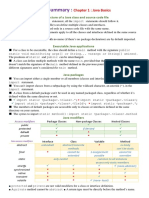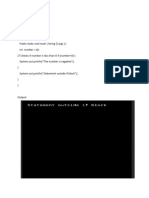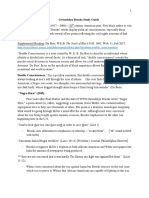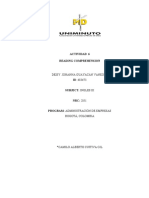0% found this document useful (0 votes)
4 views19 pagesChapter 12 Notes
Chapter 12 discusses library classes in programming, focusing on the concept of data types, including primitive, composite, and user-defined types. It explains object creation using the 'new' operator, accessing member variables and methods, and introduces wrapper classes for converting primitive types to objects. Additionally, it covers auto boxing, auto unboxing, parsing strings to numeric values, and character checking methods.
Uploaded by
Bk SiriCopyright
© © All Rights Reserved
We take content rights seriously. If you suspect this is your content, claim it here.
Available Formats
Download as PDF, TXT or read online on Scribd
0% found this document useful (0 votes)
4 views19 pagesChapter 12 Notes
Chapter 12 discusses library classes in programming, focusing on the concept of data types, including primitive, composite, and user-defined types. It explains object creation using the 'new' operator, accessing member variables and methods, and introduces wrapper classes for converting primitive types to objects. Additionally, it covers auto boxing, auto unboxing, parsing strings to numeric values, and character checking methods.
Uploaded by
Bk SiriCopyright
© © All Rights Reserved
We take content rights seriously. If you suspect this is your content, claim it here.
Available Formats
Download as PDF, TXT or read online on Scribd
/ 19



























































































